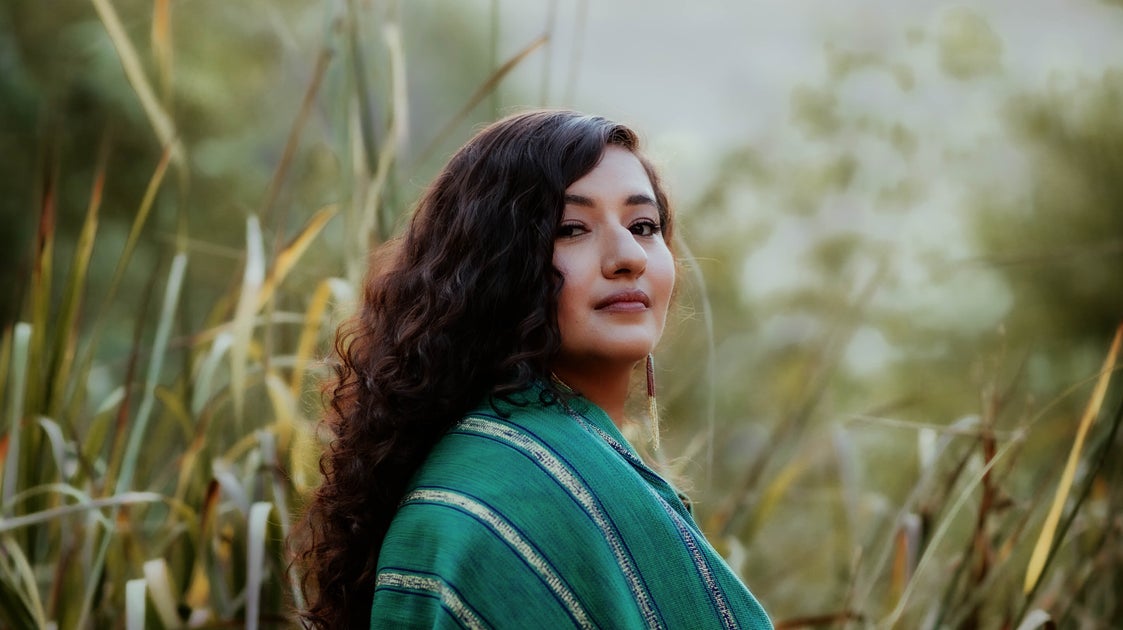Berenice Dimas first learned to make herbal medicine from her mother as a child. “When we had coughs, she used to grab the oregano from our garden and boil about two tablespoons of it in a pot with half a can of Coke,” Dimas, an herbalist and former school teacher in San Diego, recalls. She didn’t realize then that her mother was essentially hacking a medicinal syrup recipe with what was on hand.
Years later, while studying herbalism at an ancestral apothecary in the Bay Area, Dimas asked her mother why they used soda instead of water to carry the herbs.
“In Mexico, where we’re from, water is more expensive than Coke,” her mother explained. “And so we got really creative with Coke because we had to save the water for things like drinking and cooking that we couldn’t use.”
The recipe was born from care shaped by constraint, care that depends on knowing the plants, the land and the people you serve. For Dimas and the other herbalists I spoke with, the heart of herbalism is relationship, not transaction.
The ways settler culture has recruited herbalism for capitalism in the U.S. are both subtle and insidious. For example, Dimas rejects the idea that herbalism is a “tool.”
“Herbalism is, instead, a way of being in relationship with the land — a deep alchemy that bridges plants, their spirit and their medicine with ours,” she tells me.
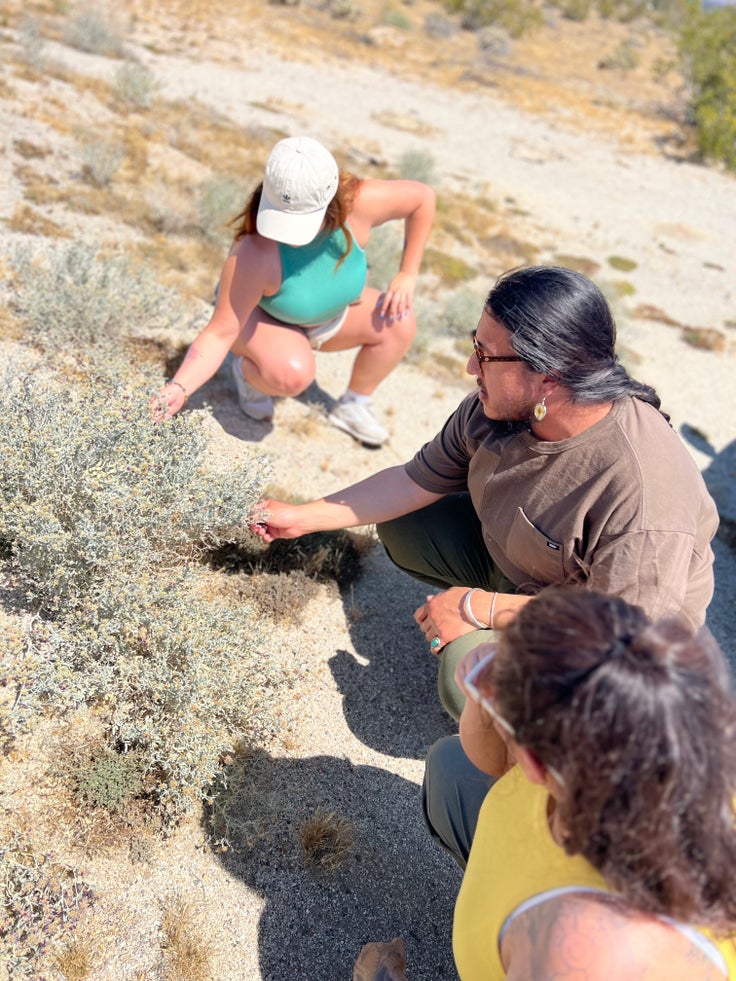 Herbalism, in this light, is inseparable from collective care.
Herbalism, in this light, is inseparable from collective care.
Courtesy of Berenice Dimas
That refusal to frame plants as mere instruments that benefit us is motif for others in the field.
“For me, herbalism is about remembering our embodiedness and our embeddedness in our ecosystems and the magic of this world,” says herbalist Mara June, who leads Motherwort and Rose, an online grief-and-herb cohort. June helps people metabolize grief using plants as both inspiration and medicine. “It’s about seeking repair and loving relationships between humans and plants, making medicine that is shared and accessible.”
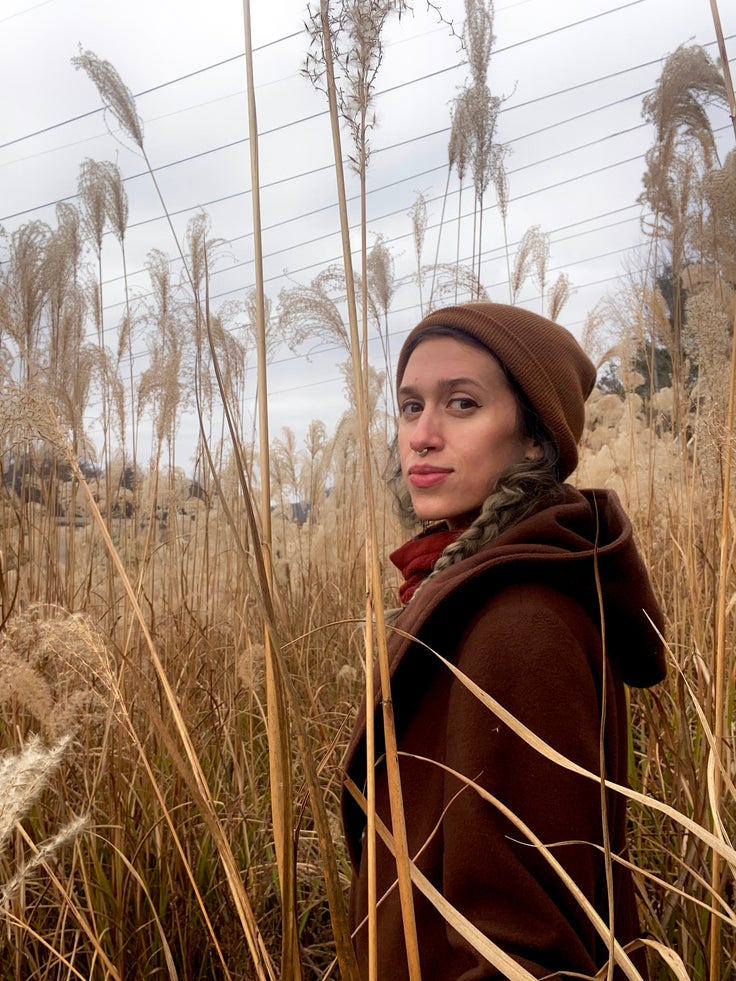 In her words, Mara June helps people metabolize grief using plants as both inspiration and medicine.
In her words, Mara June helps people metabolize grief using plants as both inspiration and medicine.
In case you don’t know, an herbalist is a healer who works with plants as medicine — not only in the Western sense of remedies, but in the Indigenous sense of reciprocal care with the land. Jess Reyes, an herbalist in Long Beach, California, sees this as a direct rejection of the wellness industry’s habit of treating plants like commodities.
“So much of wellness is extractive — the ideologies of, ‘What can this plant do for us?’ And then they go rip through where this plant naturally grows to make some fucking face cream,” she says. “Herbalism is about shifting away from that.”
Reyes, Dimas and another herbalist, John Jairo Valencia, co-run Hood Herbalism, an online school offering courses and a community grounded in BIPOC, queer, and working-class herbal traditions; their lineages are often excluded from mainstream herbal curricula. In 2025, as heat domes, hurricane seasons, and health care rollbacks bear down hardest on those structurally marginalized communities, their mission — returning plant knowledge to the people who’ve carried it — reads as both inheritance and insurgency.
Herbalists like Dimas, June and Reyes understand that their work isn’t only about a plant’s properties — it’s about sustaining themselves through care and reciprocity. For many practitioners, tending these relationships is also about tending the lineages that carried this knowledge forward, despite colonization, displacement and scarcity.
This ancestral remembering is not nostalgic; it’s a form of survival.
“We are here on this planet because someone in our lineage, a couple generations before, had plant knowledge that was able to make medicine for healing,” says Valencia. “Our work is about facilitating our remembering and our own relationships to herbalism that are innate in each of us.”
And one could argue that their work is especially crucial right now. The big bastardly bill slashes nearly $1 trillion from Medicaid over the next decade, imperils rural hospitals, mandates work requirements and adds new co-pays. This isn’t to imply that herbs can replace Western medicine — but herbal wisdom that could help us and the planet stay well in the absence of a functioning state feels more urgent than ever.
Reconnecting with that inheritance and refusing to see plants as tools or commodities is part of decolonizing medicine: reclaiming practices that were dismissed, criminalized, or overwritten, and restoring them to the communities that have always carried them — communities that, in 2025, are still fighting for clean water, affordable health care, and sovereignty over their own food and medicine.
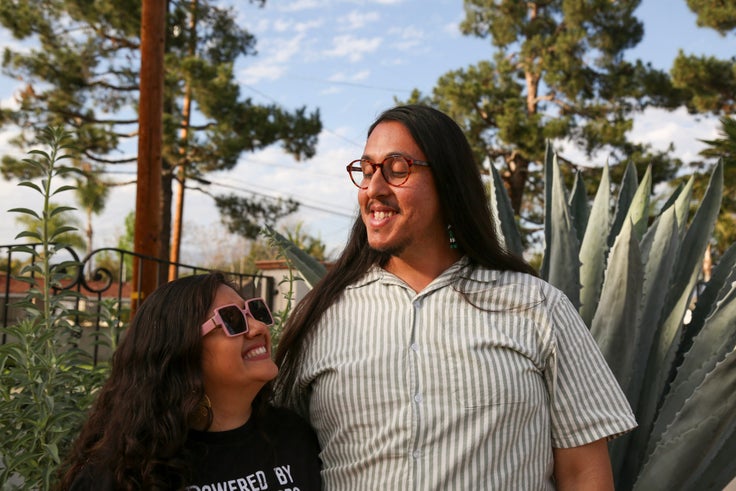 Berenice Dimas, Jess Reyes, and John Jairo Valencia co-run Hood Herbalism, an online school offering courses and community grounded in BIPOC, queer, and working-class herbal traditions
Berenice Dimas, Jess Reyes, and John Jairo Valencia co-run Hood Herbalism, an online school offering courses and community grounded in BIPOC, queer, and working-class herbal traditions
For many queer practitioners, herbalism’s focus on relationship and reciprocity mirrors their own histories of survival outside dominant systems.
“Queer people have always been participating in and practicing mutual aid because the dominant health care systems exclude us,” says June. “When the conventional way of doing things doesn’t work for you, you find another way.”
Reyes says that rejecting colonial ideas of how we should live and making room for multiple ways to be well are central to her practice. And Valencia emphasizes that reclaiming plant knowledge also means reclaiming queer healing histories erased by colonization — reminding us that queer people have always been part of medicine-making, even when, or especially because, we’ve been written out of the story.
Remembering our relationships with plants, June says, is also grief work — a way of repairing the ruptures left by colonialism and the ongoing destruction of ecosystems for profit. And in a political moment when both abortion care and gender-affirming care are under attack, grief work is inseparable from the fight to protect ways of healing that the state cannot regulate out of existence.
Plants carry these lessons.
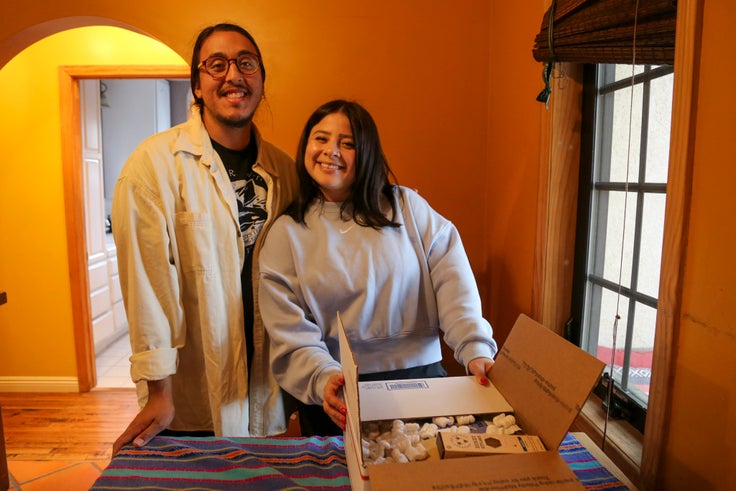 Jess Reyes believes that rejecting colonial ideas of how we should live and making room for multiple ways to be well are central to her practice.
Jess Reyes believes that rejecting colonial ideas of how we should live and making room for multiple ways to be well are central to her practice.
June invokes the corn poppy, whose seeds can lie dormant for a century until disturbed soil calls them back, often after war. She speaks of dandelions, with their deep taproots, their ability to detoxify land, and their stubborn blooms that disrupt monoculture lawns. For Reyes, the endurance of plants across millennia — through upheavals “maybe worse” than our own — offers a model for surviving collapse. They remind us to ask: When other systems fail, what does resilience look like when “it’s just us and the plants that have been here”?
Herbalism, in this light, is inseparable from collective care.
“Queer mutual aid is health care and community care,” says June. For Valencia, that ethic extends beyond people to the land itself. “Being an herbalist is a responsibility,” they say. “We are stewards of the Earth.”
Reyes frames the question plainly: How are you connecting your community to the land? That might mean assembling herbal first-aid kits for youth organizers, as Valencia does, or knowing which plants to turn to when conventional medicine isn’t accessible. For Dimas’ mother, plants were never “alternative” medicine — they were the medicine.
This is where decolonizing medicine comes into view: not just returning plant knowledge to the communities that have carried it, but actively rejecting the extractive logics that separate people from land and from each other. In that frame, herbalism becomes both inheritance and emergency plans — a way of keeping alive the knowledge that got our ancestors through collapse, so it can get us through, too.
20 Years OfFreeJournalism
Your SupportFuelsOur Mission
Your SupportFuelsOur Mission
For two decades, HuffPost has been fearless, unflinching, and relentless in pursuit of the truth. Support our mission to keep us around for the next 20 — we can’t do this without you.
We remain committed to providing you with the unflinching, fact-based journalism everyone deserves.
Thank you again for your support along the way. We’re truly grateful for readers like you! Your initial support helped get us here and bolstered our newsroom, which kept us strong during uncertain times. Now as we continue, we need your help more than ever. .
We remain committed to providing you with the unflinching, fact-based journalism everyone deserves.
Thank you again for your support along the way. We’re truly grateful for readers like you! Your initial support helped get us here and bolstered our newsroom, which kept us strong during uncertain times. Now as we continue, we need your help more than ever. .
Already contributed? Log in to hide these messages.
Or, as Valencia says, “Our survival is dependent on us having a reciprocal relationship with all living beings.”

